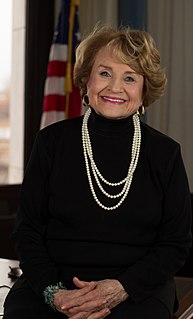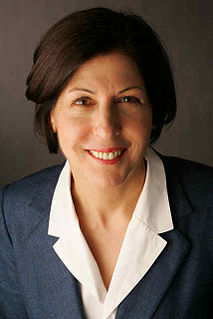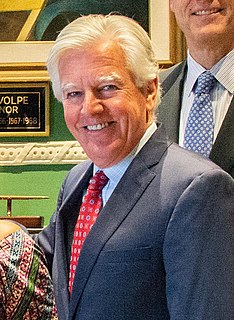A Quote by Louise Slaughter
While many have been left behind by Part D, there is a clear winner: the drug industry. Independent analysts predict that Part D will increase drug industry profits by $139 billion over the next eight years. Glaxo-SmithKline's second-quarter net income already jumped 14 percent, and other leading drug companies also have benefited.
Related Quotes
We've got to get our drug industry back. Our drug industry has been disastrous. They're leaving left and right. They supply our drugs, but they don't make them here, to a large extent. And the other thing we have to do is create new bidding procedures for the drug industry because they're getting away with murder.
In the 1990s - the period of the greatest escalation of the drug war - nearly 80 percent of the increase in drug arrests was for marijuana possession, a drug less harmful than alcohol or tobacco and at least, if not more, prevalent in middle class white neighborhoods and college campuses as it is in the 'hood.
In case you haven't noticed, a large wall is being built around the American people to ensure that they remain prisoner to the drug industry. It's easy to understand why drug makers want to force Americans to buy their products in the United States. Ours is the only industrialized country that doesn't negotiate the prices the drug companies may charge. As a result, a 90-day supply of Fosamax sells for $105 in Canada but $210 here.
I'll get rid of the drug problem. The first drug dealer will be publicly executed in front of everybody and all of the sudden the rest of the drug dealers are going to go "Uh oh!" Watch how fast the drug problem disappears. If you use drugs, you're addicted and you steal something, you'll get sent off to the outback and to work camps and all of the sudden no drug addicts. See how simple that is? So simple.
Consider the clinicaltrials by which drugs are tested in human subjects.5 Before a new drug can enter the market, its manufacturer must sponsor clinicaltrials to show the Food and Drug Administration that the drug is safe and effective, usually as compared with a placebo or dummy pill. The results of all the trials (there may be many) are submitted to the FDA, and if one or two trials are positive—that is, they show effectiveness without serious risk—the drug is usually approved, even if all the other trials are negative.
Corporations that are turning over these huge profits can own everything: the media, the universities, the mines, the weapons industry, insurance hospitals, drug companies, non-governmental organisations. They can buy judges, journalists, politicians, publishing houses, television stations, bookshops and even activists. This kind of monopoly, this cross-ownership of businesses, has to stop.

































